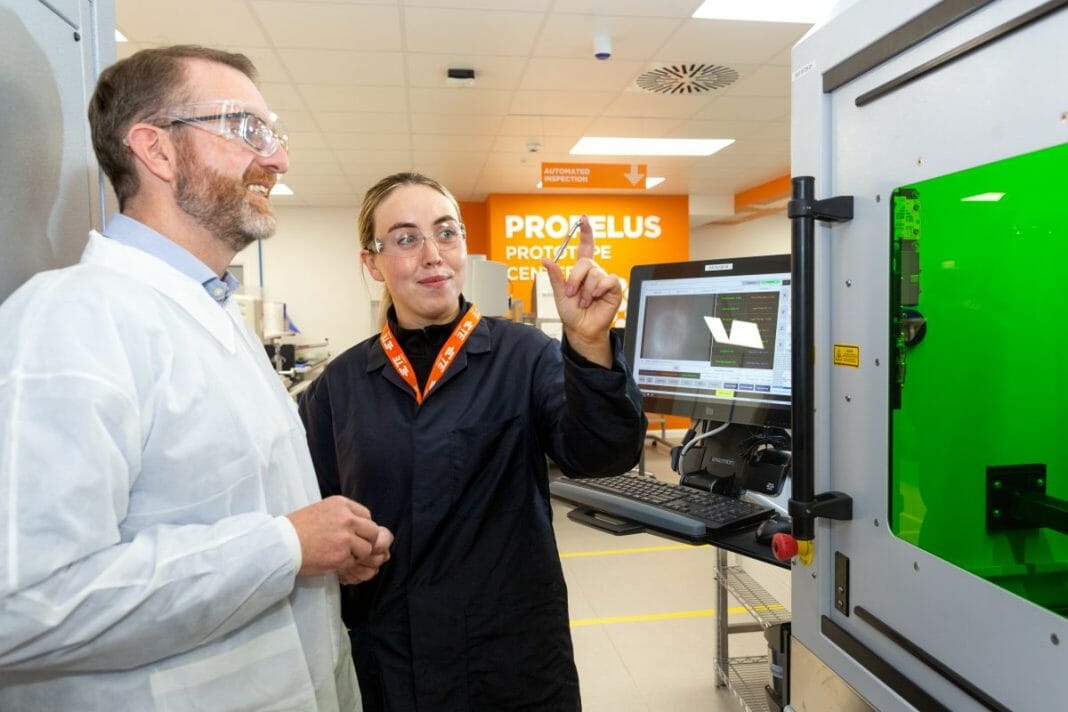TE Connectivity Corporation, a world leader in connectors and sensors, has opened its global Propelus Prototype Center for medical devices at its existing manufacturing site in Galway, Ireland.
The $5 million rapid prototyping center directly connects TE engineers with customers to reduce development time and increase speed to market for lifesaving and life-improving medical devices.
With more than 120 patients treated every minute with a medical device containing TE Connectivity technology, TE’s Galway site fulfills close to the complete global demand for minimally invasive catheter metal shafts, such as coronary stents used to open clogged heart arteries and neurovascular coils which are used in the treatment of brain aneurysms.
The Propelus Prototype Center features advanced engineering capabilities, including build-to-print services, quick turnaround prototype production and 3D printing. TE engineers work alongside customers to quickly make customer concepts a reality, enabling them to visit and leave with a physical, functional prototype, along with a detailed commercialization proposal. TE Connectivity can also manufacture the customer’s final device at high volumes in one of TE’s global manufacturing facilities and help manage their supply chain.
Commenting on the launch of the Propelus Prototype Center, Director of Operations Mark Gill said: “The principle is simple – getting high quality prototypes into customers’ hands as quickly as possible. By improving the speed of product development and manufacturing, TE will help customers innovate and iterate advanced treatments at a more efficient pace, ultimately transforming patient care for the better.”
“When our Propelus Prototype Center engineers are not busy working on customer projects, they are innovating for the future, staying close to new therapies, and trialing new technologies so we stay ahead of the curve, today and tomorrow.”



